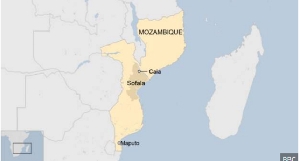- Home - News
- TWI News | TV
- Polls
- Year In Review
- News Archive
- Crime & Punishment
- Politics
- Regional
- Editorial
- Health
- Ghanaians Abroad
- Tabloid
- Africa
- Religion
- Election 2020
- Coronavirus
- News Videos | TV
- Photo Archives
- News Headlines
- Press Release
General News of Thursday, 14 July 2011
Source: GNA
Minister blames cement shortage on irregular power supply
Accra July 14, GNA - Ms Hanna Tetteh, Minister of Trade and Industry, on Thursday said drastic power outages and the irregular raw material supply caused the shortage of cement on the market.
Answering an urgent question in Parliament, the minister stated that between May and June 2011, GHACEM at Tema continuously experienced drastic power outages which affected smooth production and supply of cement.
Mr Ben Abdallah Banda, Member for Offinso South, demanded from the minister what had been the cause of short supply of cement in the country and its attendant high price increase lately.
“On the average, the factory experienced about 60 hours of power outages per week during the period which adversely affected the production and attendant supply of cement for distribution and sale,” she said.
This, according to her, resulted in huge backlog of supply to meet effective demand – payment already made but the accredited distributors who were waiting to receive supplies from GHACEM could not get them.
She said that during the same period, Diamond Cement Ghana Limited also experienced a low level of production due to irregular supply of raw materials.
According to her, Diamond Cement imports its raw materials from Spain and Far East through the Togo which had closed down for rehabilitation for a month now.
“Consequently, the volume of cement production decreased by 39 per cent from 146,705 tonnes per month in May/June 2011,” she said.
She said Greenview International Company –Tema which import bulk cement for bagging encountered some operational challenges in the form of irregular supply from the oversee producers.
“The power outs coupled with irregular and inadequate raw material supply situation experienced by the three companies resulted in the supply gap and its attendant increase in prices driven by market forces of demand and supply,” she said.
She stressed that cement producers had not increased their ex-factory prices to accredited distributors and added that the price per bag of 50 kilogrammes to accredited distributors inclusive of Value Added Tax (VAT) since August 2009 to date had been GHC10.35 for GHACEM and 9.43 for Diamond Cement Ghana Limited.
She explained that currently, electricity supply had improved at GHACEM whereas the raw material supply at the Diamond Cement Ghana Limited had also normalized due to the completion of the rehabilitation work at the Lome Harbour in Togo.
“GHACEM plans to ensure the regular supply of cement to the market in order to normalize retail prices but this will be subjected to regular availability of power from Electricity Company of Ghana adequate to promote uninterrupted production of cement at the Tema and Takoradi factories,” she said.
She stated that cement production at GHACEM had increased to 57 tonnes per week, the highest volume of production recorded since GHACEM started commercial production in Ghana when ECG resumed regular power supply.
She noted that the management of GHACEM planned to increase production capacity at Tema factory from a current level of 1.2 million to 2.2 million tonnes per annum by September 2012.
According to her, this would involve additional investment including the installation of a 150 tonne per hour mill from Christian Pfeiffer in Germany, 7,500 metric tonne concrete silo and upgraded packing capacity.
The investment as she explained would be needed to ensure that GHACEM would be able to meet the market demand for quality cement and thereby defend its strong market position adding, currently, the factory was producing 4.5 million tonnes annually.
Savanna Diamond Cement with a production capacity of 300,000 tonnes per annum would start supplying the market before the end of the year.
“I wish to assure the House that the Ministry of Trade and Industry would continue to dialogue and urge the power suppliers ECG, GRIDCO and Volta River Authority to deliver to meet the requirements of manufacturing companies in Ghana in order to promote smooth operations of industry to meet the demands of the consumers,” she said.










